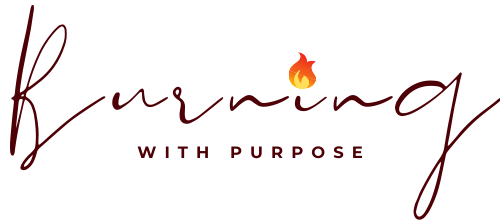
I came up with the idea to create this series when I was looking back on the past two and a half years as a small business owner, thinking “What are the things that I wish someone had told me about starting a business.” Creating is a full-time job in and of itself and running a business is like adding another full-time job on top of it. Hopefully, this series will help guide you through some of the preliminary steps. Full transparency: if I recommend any products I will include affiliate links so, if you decide to buy any of them, I will get a small kickback. Don’t fret, though, that has not swayed my opinion and every one of the products I recommend is something I fully endorse because I use it myself.
If you missed our earlier posts you can go back and read part 1 and part 2.
For me, one of the big challenges of starting a small business was deciding what I was going to make. I have many skills and a master of several crafts. Did I want to focus on one of the fiber crafts such as knitting, crocheting, cross-stitch, quilting, or tatting? As much as I love those crafts, they are time-consuming, mentally consuming, and cost-prohibited for most buyers. The market is also heavily saturated with people doing that exact same thing. I happened to be honing my skills in pyrography right around the same time I decided to start the business and found that there weren’t many people doing it. This was perfect, a market I could focus on in which I would not get lost in the sea of other creatives. You could say the uniqueness of the art called out to me.
Choosing your market
- Do your research
- Pick something you love to do. if you are going to be doing this day-in and day-out you need to make sure you enjoy it.
- Be realistic about your limitations. Physical limitations, time constraints, and financial instability can all play a part in your decision to go forward with your plan.
- See what other people are doing and use that to assess the feasibility of doing it yourself. Think about the costs.
- Remember to include the costs of materials and tools as well as operational expenses like renting space in a consignment store or materials necessary for markets.
- Find suppliers who you like to work with and align with your particular needs
- Materials. Materials can be expensive. Finding a good supplier is crucial. Craft stores are great but, as a business owner, they are not cost effective. I have to charge for materials as well as my time. Paying retail prices requires that I either have to reduce my hourly rate or raise my prices.
- Find local distributors. As a pyrographer, I sought out lumber mills with good prices and selection. My other criteria were places that aligned with my core values so I looked for mills that sell reclaimed wood. My two favorite places are Carolina Urban Lumber, for diverted wood, and Kluttz Lumber, for raw, diverted lumber.
- Collaborate with artists. One such artisan is Crowley’s Crafty Creations. Crowley’s does fractal burning which I have used as a canvases for creating a beautiful mix of lightning-like burns and my art. Another artisan I love is It’s David and Renee. I get a lot of my fine art quality wood canvases from them. (Renee also does classes for pyrography if you are interested 😉 Renee Teaches )
- Digital supplies. I have a few favorite websites for inspiration and SVGs. Some cost money and some are free. A few of the websites I use are: Creative Fabrica, Design Cuts, Design Bundles, and Font Bundles.
- Materials. Materials can be expensive. Finding a good supplier is crucial. Craft stores are great but, as a business owner, they are not cost effective. I have to charge for materials as well as my time. Paying retail prices requires that I either have to reduce my hourly rate or raise my prices.
- Find like-minded people. I found many communities and groups that specifically catered to pyrography. There are many Facebook groups if you search for them. Reddit is also a great resource.
That about wraps it up for this series. If you made it this far, thank you for reading. I hope you do well with your own business and share your own favorite small businesses and collaborators that you like to work with. See all of you next week and stay unique.



